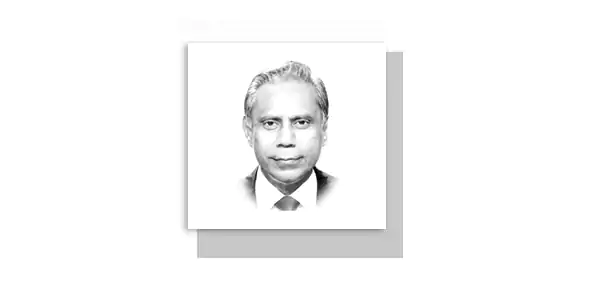ISLAMABAD hosted the 23rd Shanghai Cooperation Organization (SCO) Summit on October 15-16, 2024. Several key decisions were taken at the Summit attended by Belarus, China, India, Iran, Kazakhstan, Kyrgyzstan, Mongolia, Pakistan, Russia, Tajikistan, Turkmenistan and Uzbekistan. The SCO is a permanent intergovernmental international body founded on June 15, 2001, in Shanghai, China. The organisation expanded to nine member countries with the inclusion of India and Pakistan in 2017. Russia had pitched for India’s inclusion as a strategic partner, while China supported Pakistan to maintain a balance of power in the region.
Spanning about 60% of the Eurasian landmass, the SCO includes over 40% of the world’s population. It features major economic powers like China and Russia, along with four nuclear states: China, Russia, Pakistan and India. The SCO offers an alternative to Western-led forums. Several key decisions were taken at the 2024 Summit to enhance cooperation among the member states. Notable among them were Development Strategy, World Unity Initiative and Counterterrorism Cooperation. Development Strategy entailed the approval of the draft for the plan of the SCO pertaining to development until 2035. It also included the adoption of the Initiative on World Unity for Just Peace and Harmony. The Summit called for the Implementation of the Programme of Cooperation in Countering Terrorism, Separatism and Extremism for 2025-2027. The convention introduced the SCO Anti-Drug Strategy for 2024-2029. Strategy for the Development of Energy Cooperation among SCO Member States until 2030 was also approved.
These decisions reflect the SCO’s pledge to foster regional security, economic cooperation, and sustainable development. In a joint communiqué, the SCO member states reaffirmed commitment to further develop mutual cooperation in different spheres, including security, trade, economy, investment and cultural and humanitarian ties to build a peaceful, safe, prosperous and ecologically clean planet Earth. SCO Summit 2024 witnessed the visit of the Chinese Premier to Pakistan after nine years and the Indian Minister for External Affairs Dr Subrahmanyam Jaishankar. The Indian delegate again highlighted the issue of alleged cross-border terrorism but he was less vitriolic than his address to the UN General Assembly last month. While India remained the only SCO member to not endorse China’s Belt and Road Initiative (BRI), Jaishankar also flagged India’s concerns about China and Pakistan in a veiled manner. Referring to Pakistan, Jaishankar said, “If activities across borders are characterised by terrorism, extremism and separatism, they are hardly likely to encourage trade, energy flows, connectivity and people-to-people exchanges in parallel.”
In what is being seen as a reference to China and the BRI, the Indian Foreign Minister stressed that “Cooperation must be based on mutual respect and sovereign equality. It should recognise territorial integrity and sovereignty. It must be built on genuine partnerships, not unilateral agendas. It cannot progress if we cherry-pick global practices, especially of trade and transit.” Prior to his visit, he had ruled out any bilateral talks with Pakistan but during the official lunch, he was seated next to his Pakistani counterpart and some unofficial discussion did take place, the contents of which have not been disclosed. The SCO and especially the presence of the Indian External Minister in Islamabad saw heightened security measures. Islamabad was virtually sealed off except for the dignitaries. This scribe returned from Skardu by air after a tour of the Northern Areas on October 15 at midday. Attempts to enter my home in Islamabad via the Grand Trunk Road, Islamabad Expressway, Golra More and Murree Road failed. Ultimately, my family and I had to spend the night with relatives in Chaklala. The next day too there was no let up till 7 PM.
When we had arrived at Islamabad International Airport from Skardu, there were a large number of foreign tourists, whose destination was also Islamabad but they too were locked out of the Federal Capital. To add to the misery of the residents of Islamabad, all shops and businesses were shut down on both days. Labourers, menial staff and workmen found no restaurant or eating place open and had to virtually starve for two days. Having toured the world, including major capitals in the world like Washington DC, Beijing, Moscow, London, Prague, Vienna and locations where major conventions and summits are organized, I have never seen the whole city turned into a virtual fortress. Contrarily, in Islamabad, business houses not only incurred monetary losses but reportedly, were harassed when they were forcibly shut down by law enforcing agencies.
Respecting Pakistan’s sovereignty, the United States, in a statement through the State Department Spokesperson Matthew Miller on the eve of the Summit, made it clear that Islamabad has the autonomy to align with any regional groupings but advised that such associations must “strictly adhere to international law and not violate the sovereignty of other nations.” During a press briefing, the US emphasised the importance of compliance with global norms, stating, “The United States respects each country’s sovereign right to associate groupings of its own choosing.” Pakistan faces the challenge of balancing its SCO engagement with relationships with Western powers, notably the US, which remains a vital economic partner. Internal political dynamics could also pose obstacles for Islamabad in fully leveraging the summit’s opportunities.
Pakistan, which is facing immense challenges through political turmoil, terror attacks, energy shortages and a dwindling economy, needs to balance its relationship with the west and China, Russia and the Middle East. Conflicts in Gaza, Lebanon, Ukraine and possible showdown between Israel and Iran, make it imperative for Pakistan to ensure a well thought foreign policy to maintain its sovereignty and avoid being dragged into superpower rivalry. The SCO Summit opened doors for Pakistan for increased trade and investment. Its active participation in initiatives focused on improving transport links, energy cooperation, and digital connectivity to integrate it into the regional economy. It is hoped that future summits hosted by Pakistan will have adequate security arrangements but not torment its own citizens.
—The writer, Retired Group Captain of PAF, is author of several books on China.









